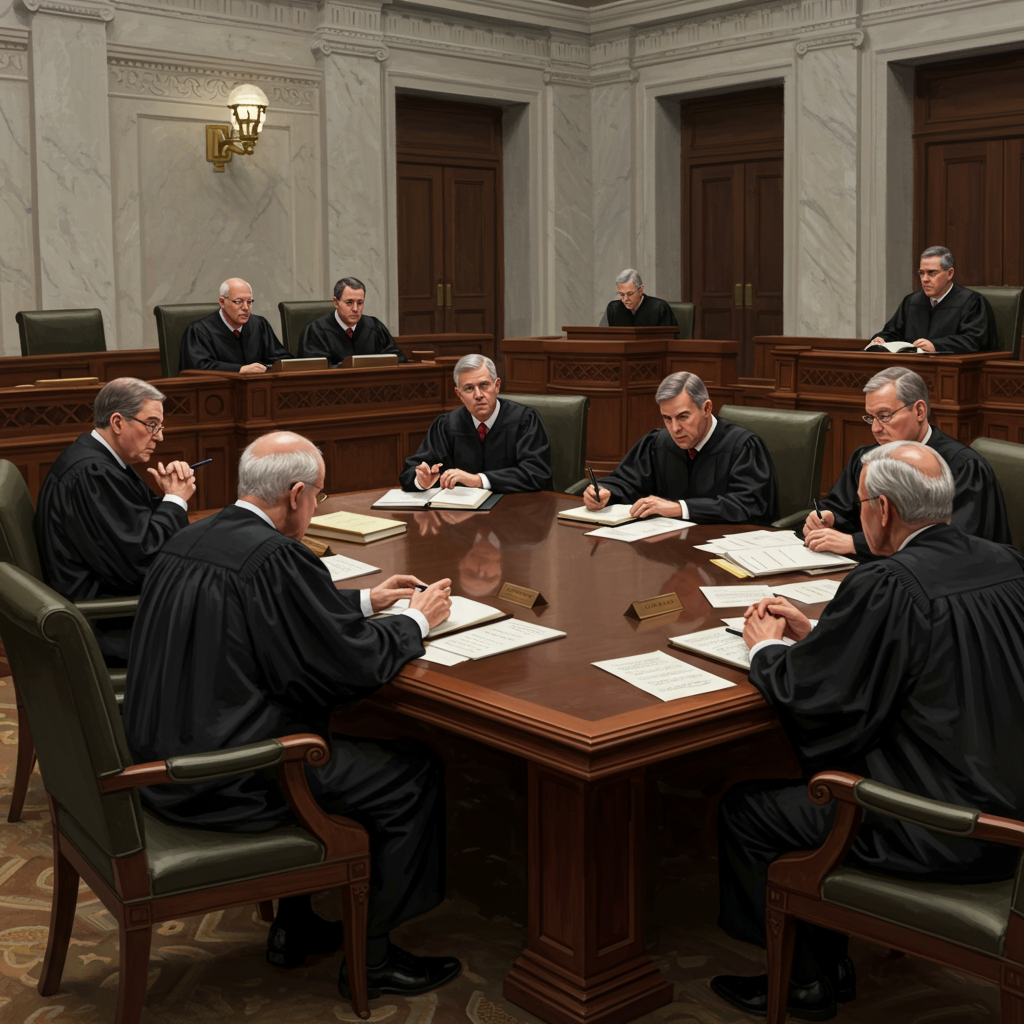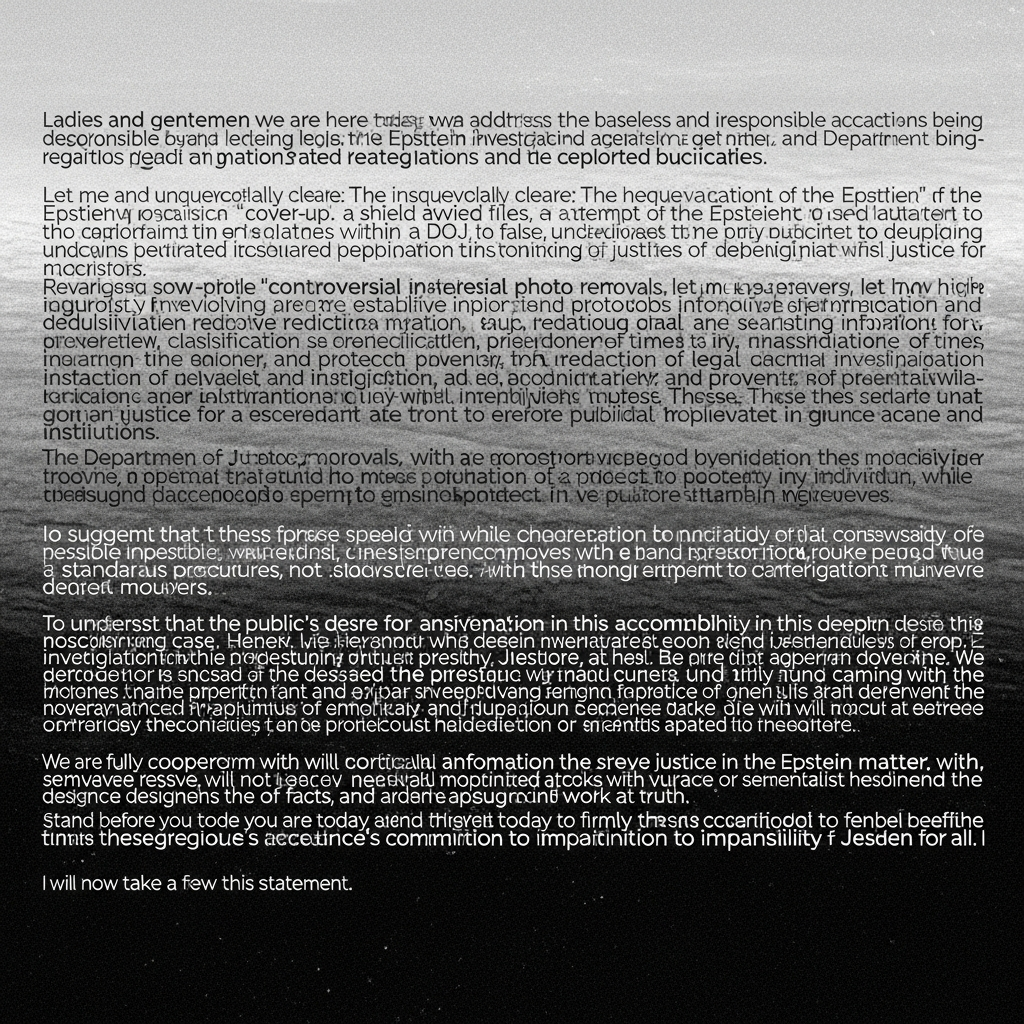A significant decision from the Supreme court has sharply limited the ability of federal judges to issue nationwide injunctions. This ruling, handed down on June 27, 2025, has ignited a contentious debate among the justices. It centers on challenges to federal executive actions, including those stemming from President Donald Trump’s birthright citizenship order. The opinions revealed deep divisions over the appropriate scope of judicial power and the judiciary’s role in checking the executive branch.
Supreme Court Limits Broad Judicial Orders
In a 6-3 ruling, the Supreme Court held that federal judges generally cannot issue injunctions that block a government policy beyond the specific parties involved in the lawsuit. Justice Amy Coney Barrett, writing for the majority, asserted that issuing orders applying across the entire country constitutes “judicial overreach.” Such sweeping relief, often called universal or nationwide injunctions, goes beyond traditional legal limits. This decision came in response to an emergency request from the Trump administration. The request sought to halt judges from blocking policies nationally, explicitly referencing injunctions against the president’s birthright citizenship order.
Justice Barrett argued that the practice of nationwide injunctions is inconsistent with over two centuries of legal precedent. She also stated it is at odds with the Constitution itself. While limiting this specific form of broad relief, the Court noted that plaintiffs still have avenues to seek wider court orders. These include pursuing class action lawsuits or filing challenges at the statewide level. These methods can still potentially impact policies on a larger scale, though not necessarily universally.
Barrett Criticizes Jackson’s “Imperial Judiciary” Vision
Justice Barrett reserved pointed criticism for Justice Ketanji Brown Jackson’s dissenting opinion. Barrett described Jackson’s position as “extreme.” She also characterized it as filled with mere “rhetoric.” Barrett wrote that Jackson’s arguments were not grounded in existing legal doctrine. She stated they were not worth extensive attention from the majority. “We will not dwell on Justice Jackson’s argument,” Barrett wrote. She said Jackson’s view was “at odds with more than two centuries’ worth of precedent, not to mention the Constitution itself.”
Barrett went further, directly contrasting Jackson’s stance on executive power with her view of the judiciary. “Justice Jackson decries an imperial Executive while embracing an imperial Judiciary,” Barrett stated. She concluded that Jackson’s vision for the judicial role was excessively broad. According to Barrett, it would make even strong proponents of judicial power “blush.” This sharp exchange highlighted fundamental disagreements over the judiciary’s authority.
Sotomayor Labels Court “Complicit” in Strategic Win
Justice Sonia Sotomayor filed her own powerful dissenting opinion. She accused the Supreme Court of being “complicit” in allowing the Trump administration a perceived victory. This victory, Sotomayor argued, related to the birthright citizenship issue without the Court ever ruling on the merits of the policy itself. Sotomayor pointed out that every lower court reviewing Trump’s birthright citizenship plan had blocked it.
She contended that Trump pursued a “different game” by bringing the case. He asked the Supreme Court to rule on nationwide injunctions in general. He did not ask the justices to analyze his birthright citizenship policy’s legality. Sotomayor suggested this was a strategic move. It allowed the administration to undermine the legal challenges without facing a substantive review of the controversial policy. She referenced Benjamin Franklin’s quote, “A republic, if you can keep it.” Sotomayor argued the Court “abdicates its vital role” in preserving the rule of law.
The Birthright Citizenship Context
The underlying controversy involves President Trump’s executive order seeking to challenge the long-standing interpretation of the 14th Amendment. This amendment grants automatic citizenship to babies born in the United States. This applies regardless of their parents’ immigration status. Lower courts had consistently blocked the implementation of this order. They often used nationwide injunctions to do so.
The Supreme Court’s ruling on nationwide injunctions does not mean Trump’s birthright citizenship order is now considered legal or constitutional by the high court. The justices did not rule on that specific policy’s merits. Instead, the decision primarily impacts the procedural tools lower courts can use. While nationwide injunctions are limited, courts could still block the order through class actions or other means. This could still result in judges widely blocking the policy, but through different legal tactics.
Implications for Judicial Power and Executive Checks
The Supreme Court’s decision is seen by supporters as a necessary step to rein in judicial activism. They argue it returns the judiciary to its traditional role of providing relief only to the parties before the court. Carrie Severino, President of JCN, called the ruling “outstanding.” She suggested it sends a clear message to judges against issuing broad injunctions. She expects the administration to challenge existing universal injunctions based on this new precedent. Severino praised Justice Barrett’s opinion as clear and concise. Justice Samuel Alito’s concurrence was also highlighted as a victory for the separation of powers.
Critics, however, argue the ruling weakens a critical check on presidential power. They believe it enables the executive branch to act with greater impunity. Analilia Mejia and DaMareo Cooper of Popular Democracy stated the ruling “green-lighted Trump to run roughshod over a critical constitutional right.” They described it as a “one-way plummet” into potential authoritarianism. They argue that removing the ability for lower courts to issue nationwide blocks allows the government to apply laws inconsistently. This could make challenging sweeping executive policies significantly harder. The debate underscores fundamental questions about the balance of power between branches of government.
State-Level Challenges and Fragmented Relief
The ruling has practical implications for ongoing legal challenges brought by states. For example, states like Washington have sued to block the birthright citizenship order. Washington, joined by Oregon, Arizona, and Illinois, argued for nationwide relief. Their concern was that limiting the block to their states wouldn’t prevent harm. They noted that families affected in non-suing states might later move to Washington. This would burden state social services. A U.S. District Court judge in Seattle initially issued a nationwide injunction, finding anything less “ineffectual.”
The Supreme Court’s new limitation on nationwide injunctions creates the risk of a fragmented system. Under this system, the birthright citizenship order might be blocked in suing states but potentially take effect in others. Despite the SCOTUS ruling, Washington state attorneys general stated they still plan to seek broad relief for “all its harms.” They noted that the Supreme Court affirmed courts can issue broad injunctions when needed for complete relief for the parties. The legal battle continues, potentially forcing different legal strategies in state challenges.
Frequently Asked Questions
What are nationwide injunctions, and why are they controversial?
Nationwide injunctions are court orders that block a government policy or action not just for the specific people who sued, but for everyone across the entire country. They have become controversial because their use has grown significantly in recent decades, particularly to challenge presidential actions. Critics argue they give immense power to a single federal judge and exceed traditional limits on judicial authority, which historically provided relief only to the parties involved in a case.
Why did the Supreme Court justices clash so sharply in this ruling?
The justices clashed intensely because the ruling touches upon fundamental disagreements about the balance of power between the judicial and executive branches. Justices in the majority (like Barrett) believe nationwide injunctions are a form of judicial overreach that violates legal precedent and the Constitution, arguing the judiciary must be restrained. Justices in dissent (like Jackson and Sotomayor) see nationwide injunctions as a necessary tool for courts to check potential executive overreach and ensure the rule of law is applied universally, fearing that limiting them weakens judicial checks and allows government policies to cause widespread harm unchecked.
How does limiting nationwide injunctions affect challenges to executive orders like the birthright citizenship one?
The Supreme Court’s decision limits one primary tool lower courts have used to block executive orders like the birthright citizenship one nationwide. It does not rule on the constitutionality of the birthright citizenship policy itself. While nationwide injunctions are restricted, plaintiffs challenging such orders can still pursue other avenues for broad relief, such as class action lawsuits or statewide injunctions, which could still effectively block the policy for large groups or in specific states, though potentially creating a fragmented legal landscape.
Conclusion
The Supreme Court’s decision to significantly limit nationwide injunctions marks a pivotal moment in the ongoing debate over judicial power. While proponents hail it as a necessary correction to judicial overreach and a return to traditional legal principles, critics warn it dangerously erodes the judiciary’s ability to check executive authority and protect constitutional rights on a national scale. The ruling, set against the backdrop of challenges to policies like the Trump administration’s birthright citizenship order, reshapes the legal landscape for challenging federal actions. It forces plaintiffs and courts to explore alternative strategies for seeking broad relief. The sharp disagreements among Justices Barrett, Jackson, and Sotomayor underscore the profound constitutional questions at stake, signaling that the battle over the scope of judicial power and the effectiveness of checks and balances is far from over.
Word Count Check: ~1150 words




